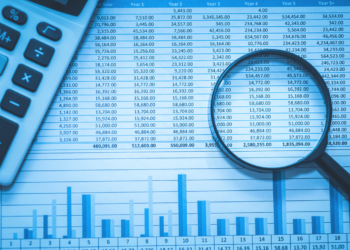When parties are at odds about complex financial, accounting and tax matters, using a forensic accountant for a neutral evaluation can help to resolve issues quickly and cost effectively. Instead of paying high fees to two experts who may end up fighting with each other, a jointly hired neutral expert allows for closure sooner and at a lower cost.
Selecting the right accounting expert can increase the level of trust the parties have in the process while helping to smooth out disputes and facilitate the delivery of a well-founded opinion. To be successful, it helps to understand when to use a forensic accountant, how to select the right one and what to expect from the process.
When a Neutral Accounting Expert Can Help
Common uses for a neutral forensic accountant include:
- Calculating the value of a business.
- Choosing between multiple, differing opinions offered by party-selected experts.
- Economic damages calculations.
- Financial investigations, including fraud.
- Interpreting accounting provisions in a contract or agreement.
- Interpreting accounting or tax rules.
- Performing complex accounting computations.
For example, stakeholders in a business may be trying to buy out a minority shareholder and disagree on the value of the business. In addition, a minority shareholder may have raised allegations of fraud or impropriety that need to be sorted out from business and accounting records. A forensic accountant with business valuation and fraud investigation experience is the ideal expert to uncover any irregularities in the financial records while determining a fair value for the buyout.
Forensic accountant neutrals are also frequently used in disputes between vendors and customers and especially in complex marital dissolutions.
Often, only one side will believe there’s fraud or irregularity in the financials. Using a neutral forensic accountant can be a way to put that side at ease, while determining if there is any foundation for the allegations.
Selecting a Neutral
Neutrals are often called in when the parties have been fighting for long enough over complex financial and/or valuation issues to understand that it’s going to be more straightforward – and a lot less expensive – to bring in a neutral expert and abide by that person’s judgment. Using a neutral with the right credentials keeps the process moving forward and builds trust on all sides.
Credentials to look for in a neutral accounting expert include:
- ABV – Accredited in business valuation.
- CFE – Certified fraud examiner.
- CFF – Certified in financial forensics.
You also want to find a neutral with considerable experience and education from the “school of hard knocks.” They need to be able to decisively chart a middle course between all parties, while sticking to their opinions when unfounded or irrelevant criticisms arise. A good neutral is practiced at fully hearing all sides of the story without giving the impression of favoring any side.
Accountants from mid-sized or larger firms come with the bench strength (size and expertise) to efficiently and effectively complete larger projects. At times, what one party thinks is going to be a simple matter turns out to require looking through years of financial records. If your case expands, you will need a neutral with the support required to power through for required deadlines.
Important Terms of Engagement
You can expect any qualified CPA to ask for a court order as part of their engagement agreement in accordance with the provision of quasi-judicial immunity under the decision in Catherine F. Peterka v. Stephen G. Dennis, et al., 764 N.W. 2d (Minn. 2009). This is important because parties will frequently only consider the neutral to in fact have been neutral until after the opinion has been given – after that, one party may want to challenge the opinion, including by trying to sue the neutral.
A court order will also prevent one of the parties from attempting to unilaterally fire the neutral simply because they don’t like the direction being taken by the expert.
If a court order is not appropriate (i.e., where the dispute is not yet in litigation), expect your neutral to ask for the similar quasi-judicial immunity wording in their engagement agreement.
Working with a Forensic Accountant
The sequence of a neutral evaluation often follows this model.
Stage 1: Initial Conference. The initial conference covers the scope and the communication guidelines for the engagement. Any potential conflicts must be disclosed in this stage. The scope of work needs to be sufficiently described so that the neutral and the court understand what is to be accomplished, but it can’t be so specific as to hamper the neutral’s ability to complete the job if they uncover unanticipated issues that require unforeseen procedures.
Stage 2: Discovery. Although stage one can be routinely similar for many kinds of neutral engagements, the discovery stage is often more complex with a forensic accountant because the kinds of issues under investigation are much more intricate. There can be multiple rounds during this stage in which the parties provide information to the accountant, hear preliminary findings and are asked (or volunteer) to provide further information.
Stage 3: Draft Report. The draft report is like an NFL instant replay – if there is clearly an error or a mistake included in the report, it can be changed, but not if the parties simply don’t like the decision. The latter is usually the case. This is a time to uncover any missing information, but it’s rare for the neutral’s opinion to change if complete information was provided in stage two.
Stage 4: Final Report. This can be a simple document if parties are looking to keep their report costs down, or a much more complete report can often provide even better assistance in helping to produce a settlement by providing a more detailed explanation of the procedures performed and their results. The format of the report should have been determined during stage one when talking about the scope of work.
Ready to Help!
If you think your dispute would be served by bringing in a forensic accountant as a neutral, don’t hesitate to contact a few and ask questions. Forensic accountants are generally more than happy to talk about our profession and the value that we can add to the dispute resolution process as party or court-selected neutral experts. Joseph Kenyon








